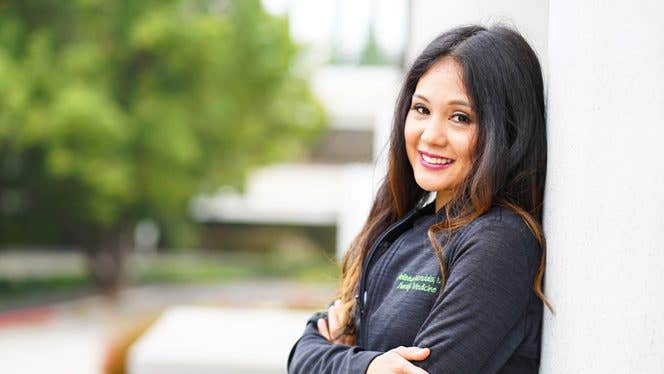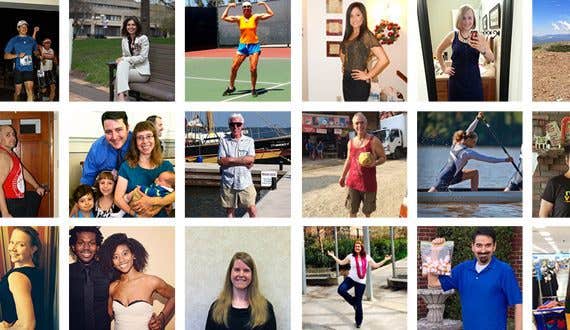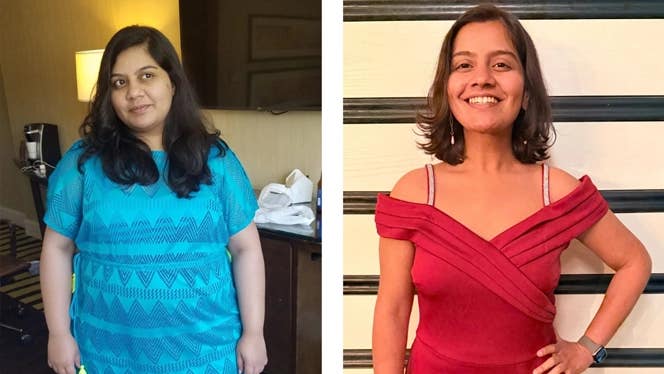
How Changing My Diet Healed My Gut and Made Me a Better Doctor
I grew up on a standard American diet. I was raised to eat lots of meat and dairy (which I thought I needed for calcium and protein) and a single serving of vegetables and fruits every day. I believed that one apple a day would keep the doctor away. In 2010, I was diagnosed with gastroesophageal reflux disease (GERD), but I didn’t make the connection to nutrition. In 2011 I began medical school, where, like many of my fellow students, I subsisted on greasy pizzas, hot dogs, and other highly processed junk foods.
Worsening GERD and IBS
I’d experienced digestive troubles since I was a teenager, but they worsened over the course of my medical training. I began to have uncontrollable episodes of diarrhea, nausea, and abdominal cramps, and I became less focused and more depressed. It was not uncommon for me to skip social meet-ups because of stomach cramps and loose stools. Eventually, I was diagnosed with irritable bowel syndrome. On top of this, I had horrible acne. There was a long list of medical therapies for my ailments; I tried them all and none helped.
In early 2016, I began to search for the connection between nutrition and health, going through stacks of books and articles, especially about Loma Linda, California, where an unusually high percentage of the local population led healthy, active lives well into their 90s. These were seniors who worked full-time and cycled or even taught fitness classes on the side. Notably, the people of Loma Linda ate mostly plant-based diets. Then I attended the annual American College of Lifestyle Medicine conference and heard lifestyle medicine legends speak about how beneficial plant-based diets can be for a variety of issues, not just longevity.
Taking Charge with Lifestyle Changes
I reflected and realized that my diet was the likely culprit behind my IBS and acne. I decided to make the switch to a plant-based lifestyle. I spent a week cleaning out my kitchen and learning how to shop and cook differently. I explored plant-based substitutions to make healthier versions of some favorite foods. I made dishes such as tofu adobo, peanut butter vegetable stew, and cashew cheese lasagna. It was an enjoyable and meaningful time, because for the first time I wasn't fearful of my IBS symptoms. I knew if I changed the way I ate, I would minimize the injury to my microbiome.
Over the course of a few months, my bloating, loose stools, and GERD resolved. My acne cleared up, and my mood greatly improved. I began walking daily, which further helped my gut issues as well as my mental health. As I became more mindful, I no longer craved ultra-processed foods, and my performance at work improved, too.
It’s been nearly five years, and I’m thriving on a plant-based diet. Since making the switch, my mission in medicine has evolved. I now tell my story to patients and educate them about the power of plants, and many have improved their blood sugar and cholesterol levels by eating this way. Through my personal journey as well as my clinical experience, I deeply understand the impact that daily habits have on health.
Ready to get started? Check out Forks Meal Planner, FOK’s easy weekly meal-planning tool to keep you on a healthy plant-based path. To learn more about a whole-food, plant-based diet, visit our Plant-Based Primer.
Has a whole-food, plant-based diet impacted your life?
We would love to hear about it!
SHARE YOUR STORY
About the Author

About the Author
Melissa Mondala, MD
Join our mailing list
Get free recipes and the latest info on living a happy, healthy plant-based lifestyle.
By providing your email address, you consent to receive newsletter emails from Forks Over Knives. We value your privacy and will keep your email address safe. You may unsubscribe from our emails at any time.
